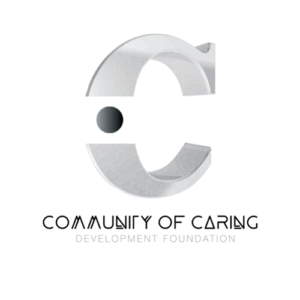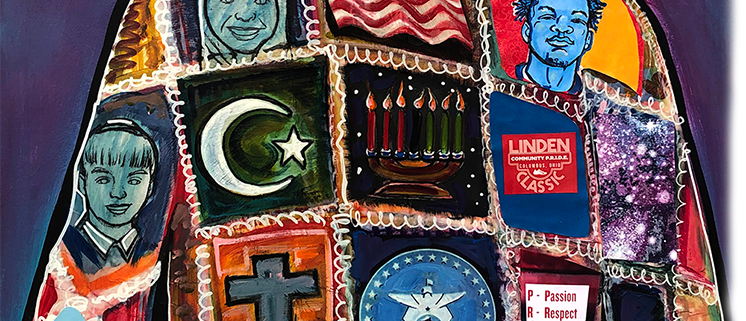
Message From The Community of Caring Development Foundation (COCDF)
As your community and economic development partner, the Community of Caring Development Foundation (COCDF) cares for the health and well-being of all our neighbors in Linden and Columbus, which is aligned with our mission of creating a connected community. During this coronavirus pandemic, it is critical that we stay connected as a community and share information and resources.
We are closely monitoring the situation. Please take care to review the information below.
The City of Columbus public health officials are working in tandem with federal, state and local officials and agencies to continuously monitor the evolving coronavirus/ COVID-19 situation and appropriately alter its response plans to mitigate community spread. Health officials strongly recommend that seniors and those most vulnerable to becoming seriously ill consider avoiding large crowds, traveling only if necessary, and taking extra precautions when leaving the house. It’s also recommended that all residents:
- Clean your hands often with an alcohol-based hand sanitizer or wash your hands with soap and water for at least 20 seconds. Avoid touching your eyes, nose, and mouth with unwashed hands.
- If you are sick, stay home, unless you are seeking medical care. Look out for symptoms such as fever, cough, or difficulty breathing. If you’re not familiar with your employer’s sick leave policy, please talk to your supervisor or HR representative.
- While sick, cover your cough or sneeze with a tissue, then throw the tissue in the trash, and wash your hands.
- Clean and disinfect frequently touched objects and surfaces, such as doorknobs, phones and tabletops.
- Social distancing is key to slowing the spread of the virus. According to the CDC, maintain about six feet of personal space and avoid public places like movie theaters and shopping centers. Avoiding shaking hands and touching, as much as possible, by practicing social distancing – an infection control action intended to stop or slow down the spread of the contagious disease. The objective of social distancing is to reduce the probability of contact between persons carrying an infection, and others who are not infected, to minimize disease transmission, morbidity and ultimately, mortality.
The Centers for Disease Control and Prevention recommends that all events with more than 10 people be canceled in the U.S. The agency also provides the following insights:
- STAY INFORMED: To make sure you have the most up-to-date information, check the CDC site regularly or sign up for the CDC newsletter here, and share the information with your neighbors.
- BE PREPARED: Make sure to have enough food, household supplies, water, vitamins and medications for each person (and pet) in your home. If you run out of supplies, let neighbors know so they can share or direct you to available supplies at businesses in your local area. Should you become ill, it is important to have health supplies on hand including pain relievers, cough and cold medicines, and fluids with electrolytes.
- GET TO KNOW YOUR NEIGHBORS: Talk with your neighbors (particularly the elderly and those with underlying medical conditions) about emergency planning and let them know you’re there to help. According to the CDC, older adults and people who have severe chronic medical conditions like heart, lung or kidney disease seem to be at higher risk for more serious COVID-19 illness. Localized community response can be critical during times when federal, state and local authorities are overwhelmed.
- IDENTIFY AID ORGANIZATIONS IN YOUR COMMUNITY: Create a list of local organizations that you can contact for information, health care services, support, resources, and mental health or counseling services.
- CREATE AN EMERGENCY CONTACT LIST: Ensure your household has a current list of emergency contacts for family, friends, neighbors, carpool drivers, health care providers, teachers, employers, the local public health department, and other community resources.
As we tighten our daily interactions and remain closer to home let’s use this as an opportunity to support the businesses in our community who service and support us every day!
Resources
Federal, state and city:
https://www.cdc.gov/coronavirus/2019-ncov/summary.htm
https://odh.ohio.gov/wps/portal/gov/odh/know-our-programs/Novel-Coronavirus/welcome/
https://www.columbus.gov/publichealth/
https://coronavirus.ohio.gov/wps/portal/gov/covid-19/
Unemployment Compensation:
http://jfs.ohio.gov/coronavirus for new information and visit http://unemployment.ohio.gov
Community Aid Resources from around Ohio including Central Ohio.
https://docs.google.com/document/d/1M6NIp9liiQyoFMaAbQNW2A082eJ_bDZCKyfeF4s-Cb4/edit?usp=drivesdk
Volunteer or donate to the Columbus City Schools.
https://www.ccsoh.us/Page/7564
What do you do if you are sick?
Is Your Household Ready for Coronavirus Disease 2019 (COVID-19)?
https://www.cdc.gov/coronavirus/2019-ncov/community/organizations/cleaning-disinfection.html
How to keep work, schools and homes safe.
https://www.cdc.gov/coronavirus/2019-ncov/community/index.html



